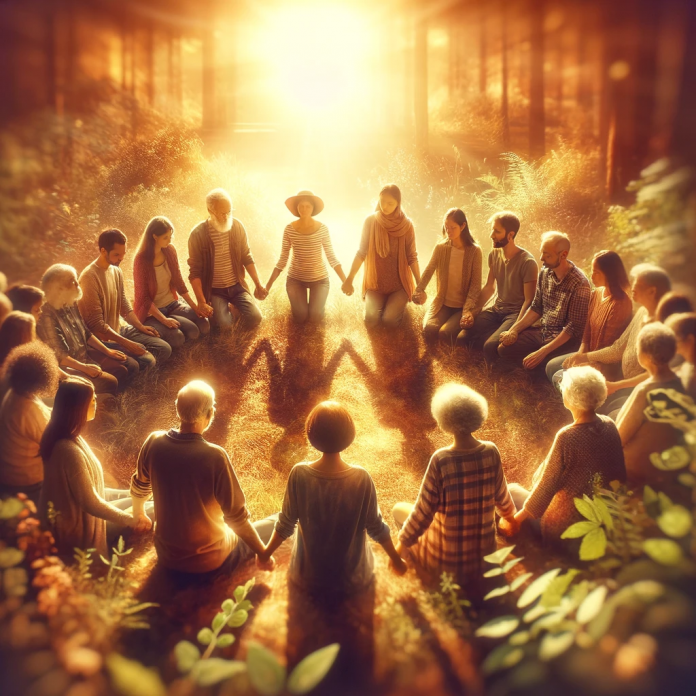Experiencing a loss can be one of the most challenging times in a person's life. The grief and pain can often feel overwhelming, and it can be difficult to imagine ever feeling normal again. However, one crucial factor that can significantly aid in the healing process is the support of a community. This article will delve into the role of community in healing after a loss, exploring the various ways in which it can provide comfort, understanding, and a sense of belonging during such a difficult time.
The Importance of Community Support
Community support plays a vital role in the healing process after experiencing a loss. It provides a safe space where individuals can express their feelings, share their experiences, and find comfort in the knowledge that they are not alone. This sense of belonging can be incredibly therapeutic, helping to alleviate feelings of isolation and loneliness that often accompany grief.
Moreover, community support can also provide practical help, such as assistance with daily tasks or organizing memorial services. This can be particularly beneficial during the initial stages of grief when even the simplest tasks can seem overwhelming.
The Role of Shared Experiences
One of the most powerful aspects of community support is the shared experience. Being able to connect with others who have gone through similar experiences can provide a unique sense of understanding and empathy. This can be incredibly comforting, as it reassures those grieving that their feelings are normal and that they are not alone in their pain.
Furthermore, shared experiences can also provide a source of hope. Hearing about how others have managed to navigate their grief and come out the other side can inspire those who are currently struggling, providing them with the hope that they too can heal and find happiness again.
Types of Community Support
Community support can come in many different forms, each with its own unique benefits. Some may find comfort in a traditional support group, while others may prefer a more informal setting. The key is to find the type of community that feels the most supportive and comforting to the individual.
Here are some of the most common types of community support available:
- Support Groups: These are structured groups that meet regularly to discuss their experiences and feelings. They are often led by a professional counselor or therapist, providing a safe and supportive environment for individuals to share their grief.
- Online Communities: With the rise of the internet, there are now countless online communities and forums dedicated to grief support. These can be particularly beneficial for those who may not feel comfortable discussing their feelings in person, or for those who live in remote areas with limited access to in-person support.
- Religious or Spiritual Communities: For many, their religious or spiritual beliefs can provide a great deal of comfort during times of loss. Many religious communities offer grief support services, including counseling, prayer groups, and memorial services.
How to Engage with Your Community
Engaging with your community during times of grief can be incredibly healing. However, it can also be intimidating, especially for those who are not used to seeking help. Here are some tips on how to engage with your community after a loss:
- Reach Out: Don't be afraid to reach out to your community and ask for help. Remember, it's okay to need support during this time.
- Be Open: Try to be open about your feelings and experiences. This can help others to better understand what you're going through and provide more effective support.
- Give Back: When you're ready, consider giving back to your community. This could be anything from volunteering your time, sharing your own experiences to help others, or simply being there for someone else who is grieving.
Conclusion
In conclusion, the role of community in healing after a loss is invaluable. It provides a sense of belonging, understanding, and hope, all of which are crucial for navigating the difficult journey of grief. Whether it's a traditional support group, an online forum, or a religious community, finding the right community can make all the difference in the healing process.
Remember, it's okay to reach out and ask for help. You don't have to navigate your grief alone. Your community is there to support you, every step of the way.


-banner.png)





